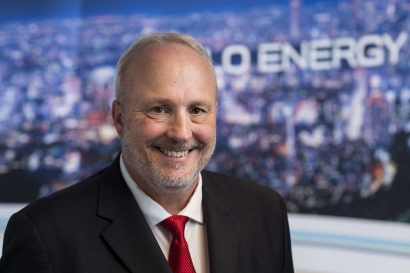
This trend was also identified in the 2020 report, and its importance to customers has only increased since. The analysis was based on web surveys and interviews with retail energy suppliers, aggregators, brokers, and end use customers. This year the report also includes an analysis of Fortune 100 ESG (environmental, social, and governance) reports to further illuminate what companies need to achieve their decarbonization and sustainability goals. Over the last four years, the survey has been structured to collect more granular data and rank the key criteria for service at each stage of the retail energy sales cycle. This has enabled energy providers to analyze and understand their own performance as compared to their peers in the industry.
The report found that energy suppliers view offering renewable energy and decarbonization products as a viable means to add value for customers. However, DNV also found that brokers that have traditionally focused on commodity sales face challenges to add these offerings, as it increases the length and complexity of the sales cycle. This underscores the opportunity for energy brokers and suppliers to dedicate additional resources to non-commodity solutions and position themselves as reliable partners for customers that need to achieve decarbonization targets. Customer focus on ESG initiatives is only expected to increase and the suppliers who provide this service will have a competitive advantage.
“Energy customers are exerting more influence on the supply mix, demanding a larger share of renewable energy as they work to achieve their ESG goals,” said Richard S. Barnes, region president, Energy Systems North America at DNV. “In addition, energy providers are finding they are increasingly considered partners in their customers’ decarbonization journey. The DNV Energy Blueprint provides all companies in the sector with the opportunity to improve their sales teams’ performance by understanding where they stand in the industry and the factors that drive success.”
The survey also ranked retail energy providers based on their performance throughout the commodity sales-cycle, from pre-sales support, to pricing and contracting, through after-sale support and service. The criteria that brokers identified as having the largest influence on their satisfaction with suppliers was the responsiveness to needs, knowledgeable representatives, and consistent, high-quality products. While low price is often expected to be the main driver in these types of transactions, DNV’s analysis revealed that customer engagement is the most important factor for success. Freepoint Energy Solutions earned the highest score in the composite rankings this year primarily based on its scores in the pre-sales and after-sales categories. The survey found brokers placed the most value on customer service and rapid response to inquiries in those phases of the sales cycle. This highlights the importance of customer engagement over a focus on a race to the bottom in pricing.
“We are honored to receive this recognition from the broker community,” said Jackson Vo, president of Freepoint Energy Solutions. “It’s a testament to the hard work of our experienced, high performing team that is focused on delivering the best outcomes to our customers and partners.”

